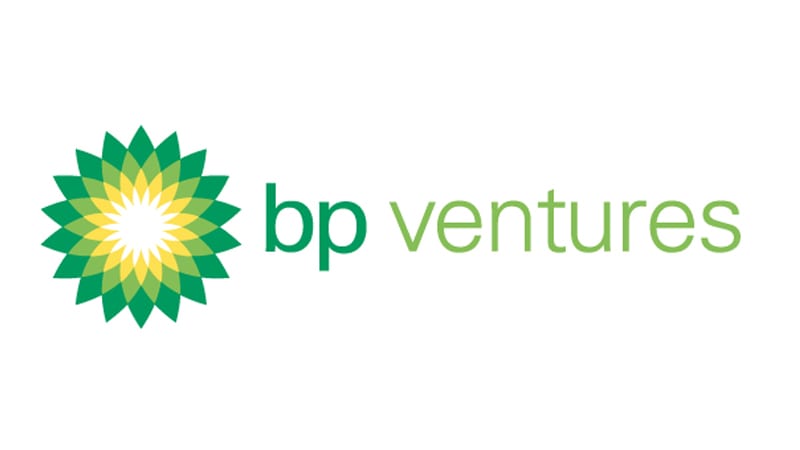GENDER EQUALITY AND THE UNTAPPED POTENTIAL TO TACKLE THE CLIMATE CRISIS
By Aziliz Le Rouzo | September 9th, 2021
“Small side note looking at the team page of your presentation [14 pictures of men]: when do you hire your first female employee?” – Valery Prunier, Open Innovation Director Europe & International at EDF
“Interesting to see that there is not a single woman on the staff list.” – Boel Swartling, Serial entrepreneur and Angel Investor
This is some of the feedback that our jury for the 10th edition of the Nordic Cleantech Open provided to one of the 139 start-ups that applied this year. For 10 years, the Nordic Cleantech Open competition has served as an observation tower for the up-and-coming cleantech innovation trends that will support the transition to a low carbon reality. The whole competition cycle, which encompasses applications, jury evaluations and events, aims to focus the attention of international investors and industrials on cleantech innovations, accelerating their access to the global market and thereby reducing carbon emissions.
While the evaluation of the teams’ strengths and weaknesses are part of the jury assessment, the lack of gender diversity is rarely pointed out, despite the field being largely male-dominated. In fact, there has been little discourse in the past regarding gender representation, whether it is within the applying teams or the jury panel itself. What is certain is that neither are gender balanced. While we have seen an increase in the number of women-founded start-ups in this year’s Top 25 compared to last, the imbalance is still striking. Bringing this issue to light is merely acknowledging the tip of a giant iceberg, which we believe has a large role to play in tackling the climate crisis.
Climate Crisis – the role of investors
As the latest IPCC report warns, climate change presents widespread, rapid, and intensifying effects, and immediate large-scale action is our last hope to limit global warming to 1.5 degrees above pre-industrial levels1. There is still a possibility of achieving that goal. Clear milestones have been set, spanning across all sectors and technologies, offering a narrow pathway which requires all stakeholders to take concerted action today and every day after that for a liveable future.
In this global transition, venture investors have the extraordinary power to support the leading technologies of tomorrow. By deciding which founders receive funds, which businesses stand a chance at success and which products get brought to market, venture investors have an undeniable power to influence societal norms.
Who are these venture investors?
A recent report released by European Women in VC, using data from 2016 to 2020, reveals that only 10% of European VCs have a gender-mixed general partnership team2. While junior level positions see progress in gender equality, the same cannot be said of the upper echelons. The gender imbalance in VC firms is critical and has large repercussions on investment decisions. In fact, it is considered one of the major obstacles to funding women-led start-ups.
On the start-up scene, gender disparity is also striking. The latest PitchBook data3 indicates that despite a record amount of capital invested so far this year in Europe, female founders have received only 0.7% of the total funding, or €400 million (about $473 million). Since we did not find these statistics for start-ups in the cleantech sector specifically, we are collecting that data ourselves and plan to release gender statistics for cleantech start-ups next year. What is clear, is that this lack of diversity at the founder level prevents capital from reaching teams, products, and solutions which would be representative of a more inclusive society.
This very problem was highlighted by one of the Nordic Cleantech Open jury last year:
“I would recommend bringing some gender diversity to your team to grasp the power of different perspectives, experience and talents. Even more so since I imagine a large portion of your customers are female.” – Julian Klaiber, Investment Associate at Munich Venture Partners
Capital is too often allocated to products and services that reflect the values of an ‘old-boys club’, regardless of their market potential. While women-led businesses outperform in capital productivity by 96%, this incredible potential is left untapped2. Not only does this funding gap lead to riskier decisions by investors, it also drives the capital towards inventions which are potentially short lived. A recent scandal around yet another unnecessary feminine hygiene product developed by men illustrates that risk well4.
Investing with a gender and climate lens?
In the midst of a global climate crisis, where and to whom capital is allocated is key in determining whether we can reach our climate goals. While investments in solutions that tackle climate change need to be deployed, the importance of gender in building long-term climate solutions should not be underestimated.
Jessica Robinson, author of Financial Feminism: A Woman’s Guide to Investing for a Sustainable Future, stresses how important the role of women is in unlocking a sustainable future:
“There are so many different aspects to explore when we talk about the role that women can and already are playing in addressing the climate crisis. As founders and entrepreneurs, we are seeing more and more successful companies founded by women that are focused on sustainability and climate solutions. I genuinely believe, because I see this first-hand, that many women in business are looking to solve global challenges. At the same time, we also know that women as investors and financial decision-makers are seeking positive societal and environmental impact through their money decisions. We have the evidence that women tend to think about the long-term impact of their investment decisions and so we can bring this all together to really make a difference. If we can encourage women to be active gender-lens investors, supporting and funding female founders who are focused on delivering climate solutions, we can unleash so much potential.” – Jessica Robinson, Founder and Managing Director at Moxie Future
To conclude, the latest climate statistics show that we are running out of time to limit the magnitude of climate change. Gender lens investing should be seen as an important lever for bringing forward successful climate solutions that take into account and seek to address the gender-differentiated effects of climate change5. Let’s not risk leaving this huge potential untapped!
References:
1IPCC. (2021). Climate Change 2021: The Physical Science Basis. Contribution of Working Group I to the Sixth Assessment Report of the Intergovernmental Panel on Climate Change [Masson-Delmotte, V., P. Zhai, A. Pirani, S. L. Connors, C. Péan, S. Berger, N. Caud, Y. Chen, L. Goldfarb, M. I. Gomis, M. Huang, K. Leitzell, E. Lonnoy, J. B. R. Matthews, T. K. Maycock, T. Waterfield, O. Yelekçi, R. Yu and B. Zhou (eds.)]. Cambridge University Press. In Press
2 European Women in VC; Unconventional Ventures; Experior Venture Fund. (2021). Funding in the CEE region – Through the lens of gender diversity and positive impact. https://ceereport2021experiorvc.unconventional.vc
3Hodgson, L. (2021). Senior female VCs call out major funding disparity in Europe. Pitchbook. https://pitchbook.com/news/articles/senior-female-vcs-call-out-major-funding-disparity-in-europe
4Mahdawi, A. (2021). Pinky Gloves are just the latest ludicrous attempt to monetise the vagina. https://www.theguardian.com/commentisfree/2021/apr/21/pinky-gloves-are-just-the-latest-ludicrous-attempt-to-monetise-the-vagina
5Biegel, S. & Lambin, S. (2021). Gender and Climate Investment: A strategy for unlocking a sustainable future. https://www.wocan.org/sites/default/files/Gender%26ClimateInvestment-GenderSmartReport-Feb21.pdf
















































































